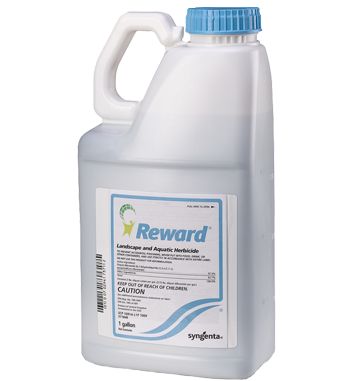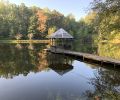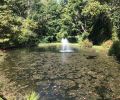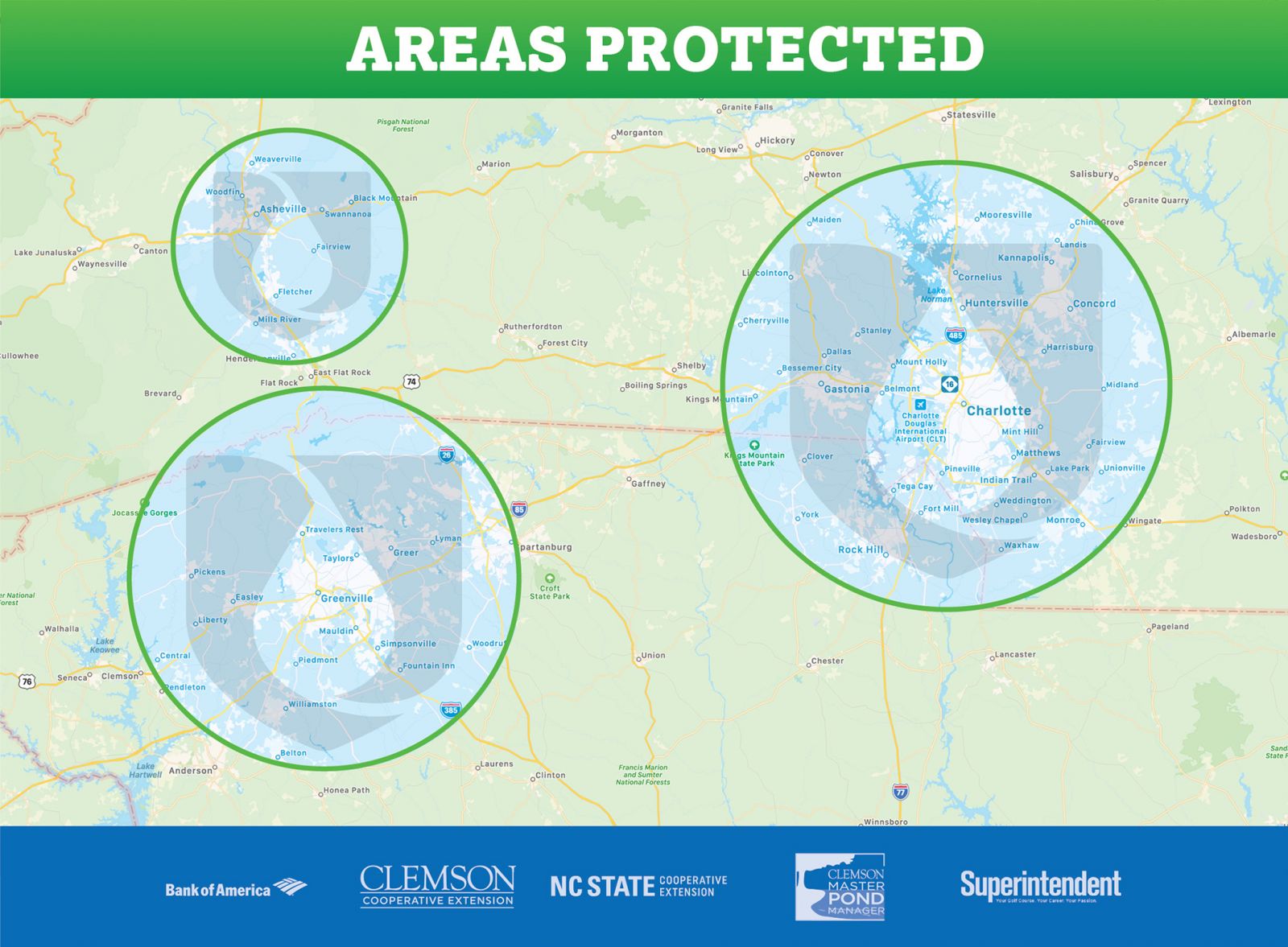Dan is on the committee for his HOA (home owners association). His neighborhood has a relatively large pond. Some might even call it a lake. He had recently had a few complaints about algae and aquatic weeds surfacing on the pond making it not so beautiful.

His friend with a pond recommended Reward, an aquatic herbicide with diquat, so Dan purchased some to fix his problem. Diquat is extremely soluble in water. It usually disintegrates in alkaline solutions but is stable in neutral or acidic solutions. It is an organic solid of colorless or yellow crystals, and the water solution is dark red-brown. After he had applied it, he was confused as to why it only seemed to affect the aquatic plants and not the algae. Not only that but some plants he wanted to keep started to die.
Dan gave us a call to try to figure out what was going on. We told him that this happens often. Diquat is probably the most common herbicide, so it made sense that he thought of it. An herbicide is “a substance that is toxic to plants and is used to destroy unwanted vegetation.” That means it will not kill algae.
For Reward Aquatic Herbicide click here.
For Tribune Aquatic Herbicide click here.

Diquat typically comes in the form of a liquid and is sprayed on plants leaves. Once it’s applied, the plant absorbs the diquat and causes the foliage to dry out causing the plant to die. Because diquat is nonselective (it is effective against any kind Non-systemic, contact activity controls only the weeds it contacts of plant species), it’s a good idea to use in situations where you are okay with other plants dying.
Don’t waste your money on using diquat in ponds or lakes with muddy water or where plants are covered with silt because it’s strongly attracted to silt and clay particles in the water. So don’t disturb the bottom sediments before or after your treatments.
Diquat is also very hazardous. Dan asked if we could help because he felt this was a much bigger job that he originally thought. We told him we would love to guide him with his pond and help keep it beautiful for generations to come.
SUMMARY
- Works quickly — no waiting for aquatic weed control
- Broad-spectrum activity successfully controls key aquatic weeds
- Non-systemic, contact activity controls only the weeds it contacts
- Diquat dibromide may not be used where commercial fish processing is practiced
- The major cause of diquat in drinking water is runoff from herbicide use
- It is a fast-acting herbicide that works by disrupting cell membranes and interfering with photosynthesis
- Diquat deteriorates when it is exposed to the ultraviolet rays of sunlight
- When heated to decomposition, very toxic fumes are emitted from diquat
- Diquat is durable under typical temperatures and pressures, but it may profess a slight fire hazard if exposed to heat or flame
- A 14-day time-span is also mandatory by EPA between diquat treatment of ponds and lakes for the use of treated water for domestic, swimming, irrigation, and livestock feeding purposes
- Do not apply this product through any irrigation system. Do not implement this product in a way that will touch workers or other persons, either directly or through drift
Now serving Greenville SC, Spartanburg SC, Asheville NC, & Charlotte NC areas.
Get started. And become a member today!




